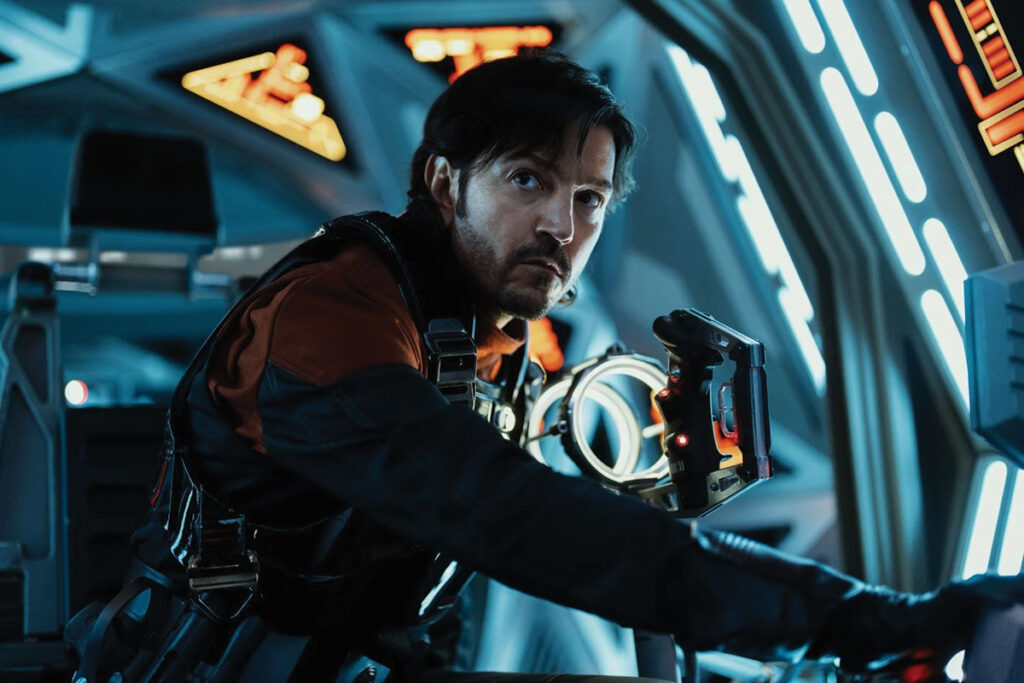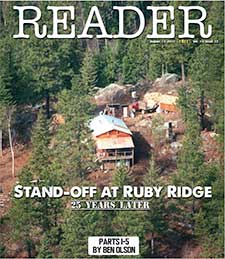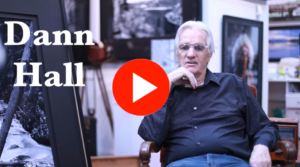Andor concludes with a pitch-perfect Star Wars story
By Zach Hagadone
Reader Staff
Of all the Star Wars properties outside the three big trilogies, Rogue One: A Star Wars Story (2016) has always stood out as particularly superb. In my personal ranking, it’s up there with The Empire Strikes Back for best of the best and, to be honest, I revisit the former more than the latter on a regular basis.
Somehow that was a controversial opinion nine years ago; but, based on the overwhelming praise for Andor — which just concluded its two-season series finale May 13 — audiences would rather inhabit the grittier, un-Forceified timeline leading up to the events of A New Hope than, say, ruminating on whatever Boba Fett, Ahsoka Tano or those annoying kids from Skeleton Crew were getting up to after Return of the Jedi.
Ostensibly centered on the initially reluctant rebel Cassian Andor (Diego Luna), the titular series covers the events immediately preceding Rogue One, which itself is about what transpired right before 1977’s A New Hope, when the plans for the Galactic Empire’s Death Star made their way into the hands of the Rebel Alliance. The final season covers just the four years prior to when Luke Skywalker destroyed the first Death Star, and its concluding episode is set only days before the opening of Rogue One.
So Andor is a 24-episode prequel of a prequel, and those familiar with the tangled matrix of Star Wars media know how hard that is to pull off with any success.
Yet Andor is so shocking in its overall quality that critics and viewers alike are left stumbling over their rush of accolades and apologizing for being hyperbolic in their hossanas. I say there’s no need to apologize, and Andor deserves every decibel of applause it’s receiving.
At the risk of repeating my 2022 review of Season 1, Andor shines because it looks elsewhere for its heroes and villains — away from the Jedis and Siths and their binary fixation on the mystical, and toward the commonplace and real.
The “good guys” in Andor make morally reprehensible decisions in the service of a greater goal that tear at their souls, put them at cross purposes with one another and involve sacrifices that damage, rather than glorify them.
The “bad guys” are likewise complicated — rather than faceless space fascists, they are revealed to be regular humans with personal ambitions, sincerely held beliefs, and families, friends and romantic relationships, though all twisted by the totalitarian system they serve. But what are they to do? Very few people are cut out to be rebels, and those who abet evil masters most often think they’re doing good.
There is struggle at the heart of every Star Wars story — they’re about “wars,” after all — but when the chief pro- and antagonists boast near-godlike powers, those struggles build to what feel like foregone conclusions. Not so in Andor, where every character in every episode makes moves that are far from guaranteed to bring success.
No one can rely on a magical savior or wise old master to guide them or win the day with the blaze of a lightsaber. People suffer and die on both sides, and not just in the comic body flops of hapless stormtroopers, but with tears in their eyes and wondering if it was all really worth it in the end.
But, as they say, “rebellions are built on hope,” and a big part of the resonance at the core of Andor is how important that message is today, with real-life forces of resistance to, complicity with and complacency in the face of authoritarianism both at home and abroad.
The stellar cast communicates all these nuances with award-worthy depth. There’s Denise Gough as the career-driven Imperial security officer Dedra Meero; Kyle Soller as the brow-beaten striver whose nebbishness puts him on the wrong side of galactic history without him even really knowing why; Genevieve O’Reilly as Sen. Mon Mothma, who sacrifices her life of wealth and power to secretly aid in destroying the government she’s served for most of her life in order to save it; and Stellan Skarsgård and Elizabeth Dulau as the shadowy figures who light the spark of the rebellion.
Other noteworthy performances are given by Ben Mendelsohn and Forest Whitaker, who reprise their respective Rogue One roles as the ruthless military director overseeing the construction of the Death Star and the extremist, schismatic rebel leader at odds with everyone. Both chew up every scene they’re in.
There isn’t a wasted performance among any of the primary, secondary or even tertiary actors, and I can’t think of a narrative beat flubbed by creator/writer/showrunner Tony Gilroy in any of the show’s pitch-perfect episodes. My vote is to give him all the Star Wars stories from now on.
If that sounds hyperbolic, I’m not saying sorry. See it for yourself, with all episodes streaming on Disney+.











 Coming up this week! Don’t miss Live Music, the Summer Sampler, the Art Party, Monarch Grind, the Sandpoint Renaissance Faire, and more! See the full list of events in the
Coming up this week! Don’t miss Live Music, the Summer Sampler, the Art Party, Monarch Grind, the Sandpoint Renaissance Faire, and more! See the full list of events in the 